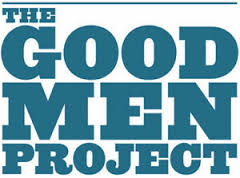
That's where dream journaling comes in. An adult will typically dream several times every night, with our most active dreaming done during the REM (rapid eye movement) stages of the sleep cycle. Our most active dreaming is done during REM sleep, but how many of these dreams can you remember when you wake up in the morning?
Dream Journalling:
Dream journaling is possibly the best way to remember your dreams. It’s certainly the most active way to do it. Have a journal beside your bed that you can easily reach when you wake up, and get into the habit of using it as soon as you open your eyes. Dream memories are often very fragile and do not last long unless we write them down. Begin by scribbling down some keywords about your dream while the memory is still there. Then flesh it out with fragments or details as you remember them. Sometimes you will remember a lot while writing this way, and sometimes you will not recall much beyond the key points. Regardless, if you develop this habit of journaling your dreams then your dream recall will improve significantly over time.
As your dream memory and recall gets better and better, be careful not to get sucked into over journaling. What I mean by this is that you don't want to be at the point where you remember several of your dreams each night in such detail that it takes you hours to write them down. This happened to me many years ago when I first worked with dreams, and it got to the point where I got fed up with it and stopped writing in my dream journal altogether. And yes, my dream recall faded over time as a result. Developing dream recall should be a benefit to us in our waking lives, not something that takes up all of our time.
So, why would we want to remember our dreams anyway?
There are a few reasons why we can all benefit from better dream recall. The first that comes to my mind is that remembering our dreams makes it easier for us to have Lucid Dreams. Lucid dreams are dreams in which we become aware that we are dreaming. In other words, we become fully conscious in the dream state, and because of this we can consciously affect the dream itself. I won't go into Lucid Dreaming too much here as it is very in depth topic, but I will say that learning how to Lucid Dream provides us with opportunities to learn, develop, and heal, all while we are asleep.
If you're interested in learning more about Lucid Dreaming, I recommend checking out www.howtolucid.com. I’ve chatted with the site owner Stefan a couple of times. He’s a good guy and he knows what he's talking about when it comes to Lucid Dreaming.
Another reason why we would want to remember our dreams is so that we can begin to find the messages in them. Our subconscious, unconscious, and even super conscious faculties communicate with us all the time. In our waking state many of us miss the majority of these messages, but in dreams we can receive the information in a more direct way. Dream experiences / scenarios, once deciphered can give us important information about ourselves. Some examples of this are our bodies telling us something is not right and needs attention, or our intuitive wisdom guiding us to one path or another.
We also notice particularly vivid dreams, and ones that occur around times of significant change in our lives. For example dreams that occur right before beginning therapy, or vivid dreams that occur after particular therapy sessions, can provide invaluable information that can really benefit the therapeutic process.
Another powerful reason to use dream journaling to improve our dream recall is for healing.
Dreams, particularly recurring dreams, often indicate something important in our lives that we need to do something about. If we learn to remember our dreams then we can begin to see patterns in them and notice what seems to come up in our dreams over and over again.
One client (who has kindly permitted me to tell this story) had a recurring dream where he stood in a forest, surrounded by five freshly filled holes in the ground, where he had buried the evidence of his greatest wrongdoings. In the dream he was overwhelmed with feelings of guilt, shame, and fear. This client had forgotten all about these dreams until one night, after we had been engaging in the therapeutic process for several weeks, he found himself back in the dream forest.
Relating this new dream in the next session of therapy, the client talked about how he now remembered the previous recurring dreams and how this one was so different. This time when he found himself in the dream forest, he discovered that all of the holes had been dug up and were empty. Instead of the feelings of guilt, shame, and fear, he now felt forgiveness, peace, and gratitude wash over him.
We discovered during that therapy session that the five holes had represented all of the big issues that the client had begun with, and how the dream validated the work that we had done in resolving these issues. We had dealt with the issues one by one over the weeks, and the dream was confirmation that the healing was done. That was a moment in therapy that I will never forget.
I should add here that dreams often cannot be interpreted literally. Dream images are symbolic and need interpreting before we can figure out their meaning. There numerous dream dictionaries that give general guidance on this, but ultimately the meanings of dreams are unique to the individual experiencing them.
One way of interpreting dreams, as suggested by Carl Jung, is to consider that everything in the dream is you. Everything in your dream represents some aspect of you.
I feel like I could go on and on about dreams, but that's not the point of this post. I wanted to tell you about dream journaling and why I think you should give it a try. If you’ve read this far I know you’re interested in dreams too, so why not start your own dream journal tonight? Who knows what you might discover about yourself.
Namasté :)

 RSS Feed
RSS Feed

